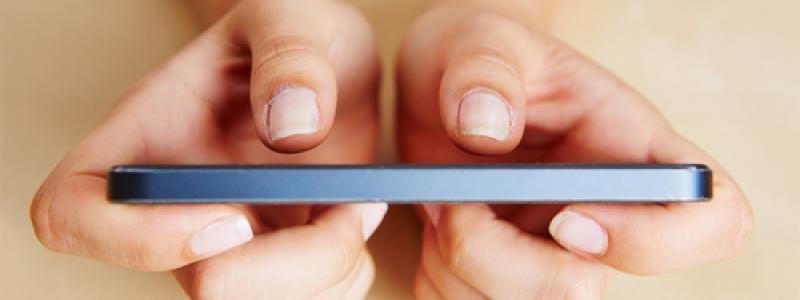How We Interact With Our Smartphones Is Changing How Our Brains Work

We have only been using smartphones heavily for about a decade and a half now, but it appears that the way we interact with our mobile devices is having an influence on how ours brains now function. Well, at least according to researchers from the Institute of Neuroinformatics of the University of Zurich anyway.
As offered by these researchers, it seems that as people shifted from using mobile devices with buttons to those with touchscreen capabilities, the part of our brain associated with how we control our thumbs are changing due to a marked increase in screen typing.
In other words, when we use our smartphones, our brains are more active in the parts associated with thumb use, which is no surprise, but this reaction only happened in users who own touchscreen-capable mobile devices.
According to Arko Gosh, one of the institute's researchers, they were able to demonstrate the frequency in which people interact with smartphones significantly affects their brain's cortical activity level. The more people used their mobile devices, the greater the signal their brain transmits. Furthermore, the correlation was most proportional (and more evident) in the part of the brain that represents thumb-related activity.
The researchers of the Institute of Neuroinformatics performed the study on 37 right-handed people. 26 of them used smartphones with touchscreens, while the remaining 11 used older cell phones.
Their findings indicate that the cortical activity in the area of the brain that is associated with controlling thumbs was markedly more pronounced among those who used mobile devices with touchscreens.
According to the researchers, this is a lot similar to classical musicians, particularly those who play the violin, their brains displaying gradual changes the more they improve at playing their musical instrument.
No doubt many are asking -- how big is the change in brain power? Are we going to develop super brains because we spend too much time tapping away on our smartphones?
Probably not. But the study does confirm what many of us already know -- we tend to develop more the parts of our brains that we constantly stimulate. In this case, essentially everyone living human being in the planet is glued to their smartphones practically all the time. So you can expect that our generation, and probably the next, will have better brain-thumb coordination compared to our forebears.
But what if we develop another popular technology that does away with touchscreens altogether (something like Google Glass, for instance)? Well, you can bet our brains will just get used to the new thing too.
Related Blog Articles
- SwipeRadio: Accessing Your Favorite Radio Stations With Just A Swipe
- New York City Considering Accepting Apple Pay For Parking Tickets
- Microsoft Looking To Update Office Apps For Windows Phone
- ZTE Announces The Budget-Friendly Grand X Max+ Phablet
- iOS Used Dominantly In The Corporate World, Per Survey By Piper Jaffray
- New, Bigger iPhones Stymie Android’s Dominance
- Dish Unveils Sling Service
- Why Do People Switch From One Wireless Carrier To Another?
- Ultra HD Alliance Founded at CES
- Cricket Wireless To Shut Down Its CDMA Network And Replace Muve Music With Deezer


 Menu
Menu